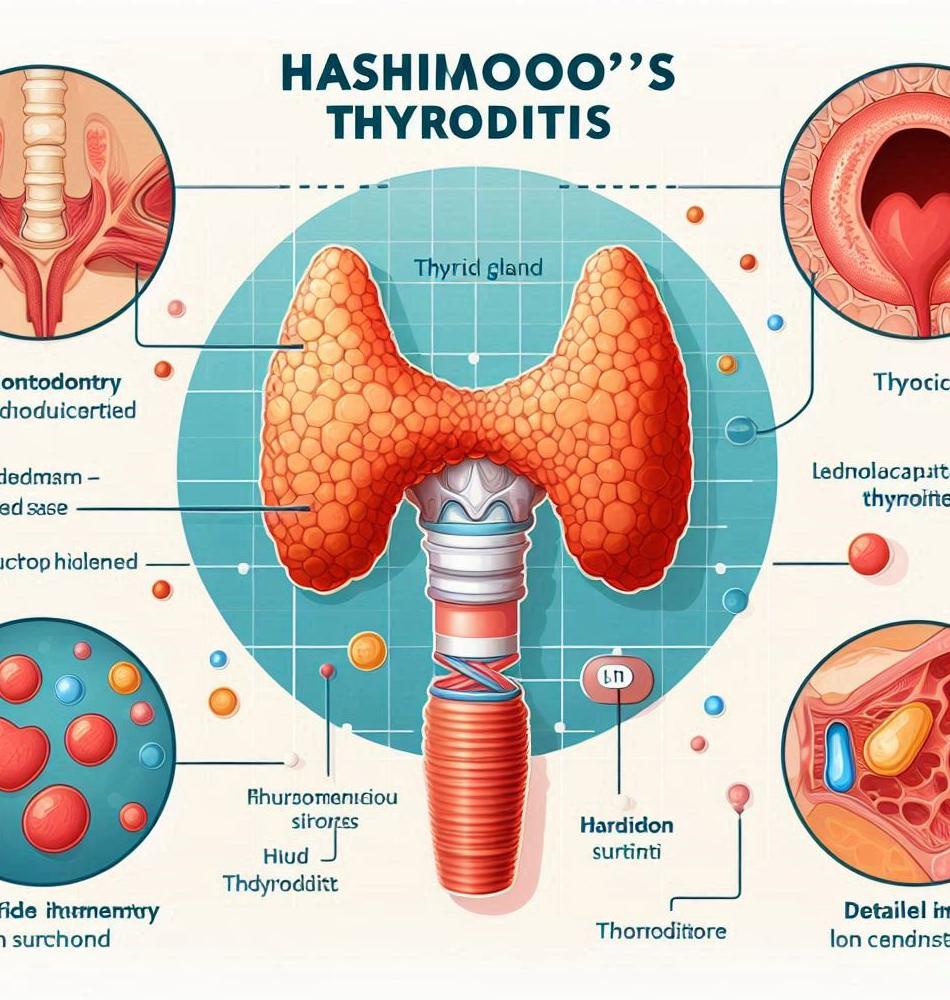Hashimoto's and the Rising Concern: Can It Lead to Thyroid Cancer? 🩺
Hashimoto’s thyroiditis is an autoimmune condition that can have significant implications on your overall health. While most people associate it with hypothyroidism, the connection to thyroid cancer has been a topic of concern among patients and healthcare professionals alike. This article seeks to untangle the web of information surrounding Hashimoto's and its potential link to thyroid cancer, providing clarity and guidance for those navigating this complex issue.
Understanding Hashimoto's Thyroiditis 🩺
Hashimoto’s thyroiditis is a chronic autoimmune disorder wherein the immune system mistakenly attacks the thyroid gland, leading to inflammation and damage. This inflammation often results in an underactive thyroid, known as hypothyroidism. Symptoms can vary, bringing about fatigue, weight gain, sensitivity to cold, and even depression.
Symptoms of Hashimoto's Thyroiditis 🩺
Symptoms can be subtle or overwhelming, making diagnosis tricky. Common symptoms include:
- Fatigue and weakness
- Weight gain
- Joint and muscle pain
- Cold intolerance
- Dry skin and hair loss
- Constipation
- Depression and mood swings
The Link Between Hashimoto's and Thyroid Health 🩺
It is essential to explore the connection between Hashimoto's thyroiditis and the potential risk of thyroid cancer. Recent studies and medical literature indicate a higher prevalence of thyroid nodules in patients with Hashimoto's. Some nodules can be benign, while others may pose risks, including malignancy.
Thyroid Nodules: An Overview 🩺
Thyroid nodules become a focal point when discussing Hashimoto’s. They can be discovered incidentally during imaging tests or through physical examination. Not every nodule is cancerous; many are benign. Understanding the nature of these nodules is crucial:
Types of Thyroid Nodules 🩺
- Benign Nodules: These encompass adenomas and colloid nodules, which are non-cancerous and commonly do not require treatment.
- Malignant Nodules: These include various types of thyroid cancer that may require more aggressive intervention.
How Are Nodules Evaluated? 🩺
Healthcare providers typically evaluate nodules through:
- Physical examination
- Ultrasound imaging
- Fine needle aspiration (FNA) biopsy for cytological evaluation
Hashimoto's and Cancer Risk Factors 🩺
While having Hashimoto's increases the likelihood of thyroid nodules, does it increase the risk of developing thyroid cancer? The relationship between autoimmune thyroid diseases and cancer is complex and not entirely understood.
Autoimmune Conditions and Cancer 🩺
Patients with autoimmune hypothyroid conditions like Hashimoto's may be at an increased risk for certain types of cancer. The inflammation caused by an autoimmune response can create an environment conducive to cell mutations and malignancies. Let's consider the factors that could influence this risk:
- Family history of thyroid cancer
- Long-standing Hashimoto's thyroiditis
- Presence of multiple thyroid nodules
- Radiation exposure to the neck region
Symptoms of Thyroid Cancer 🩺
It's critical to recognize the symptoms of thyroid cancer, especially for those with Hashimoto's. Although many of these symptoms can overlap with Hashimoto's, being aware of them can help in timely consultations:
- A persistent lump or nodule in the neck
- Changes in voice, such as hoarseness
- Difficulties swallowing
- Persistent cough not due to a cold
- Swelling in the lymph nodes
When to Seek Medical Advice 🩺
Consulting a healthcare provider is crucial for anyone experiencing new or worsening symptoms. Regular monitoring through blood tests and imaging can help manage thyroid conditions effectively.
Prevention and Management Strategies 🩺
While there are no guaranteed ways to prevent thyroid cancer, especially for those with Hashimoto's, proactive management can help mitigate risks:
- Regular check-ups with your healthcare provider
- Ultrasound monitoring for thyroid nodules
- Maintaining optimal thyroid hormone levels through medications
- Adopting a healthy lifestyle with a balanced diet and exercise
Frequently Asked Questions About Hashimoto's and Thyroid Cancer 🩺
- Can Hashimoto's thyroiditis lead directly to thyroid cancer?
- Should I be worried about every thyroid nodule?
- How often should I have my thyroid checked if I have Hashimoto's?
- Are there specific risk factors I should be aware of?
- What lifestyle changes can I make to improve my thyroid health?
Conclusion 🩺
The concerns surrounding Hashimoto's thyroiditis and its potential association with thyroid cancer are valid and deserve attention. While Hashimoto's does increase the prevalence of thyroid nodules, understanding the distinction between benign and malignant nodules is vital. Regular monitoring and consultations with healthcare professionals remain crucial for optimal thyroid health. The journey with Hashimoto's can be daunting, but with knowledge and proactive management, patients can navigate this condition effectively.
.png)






